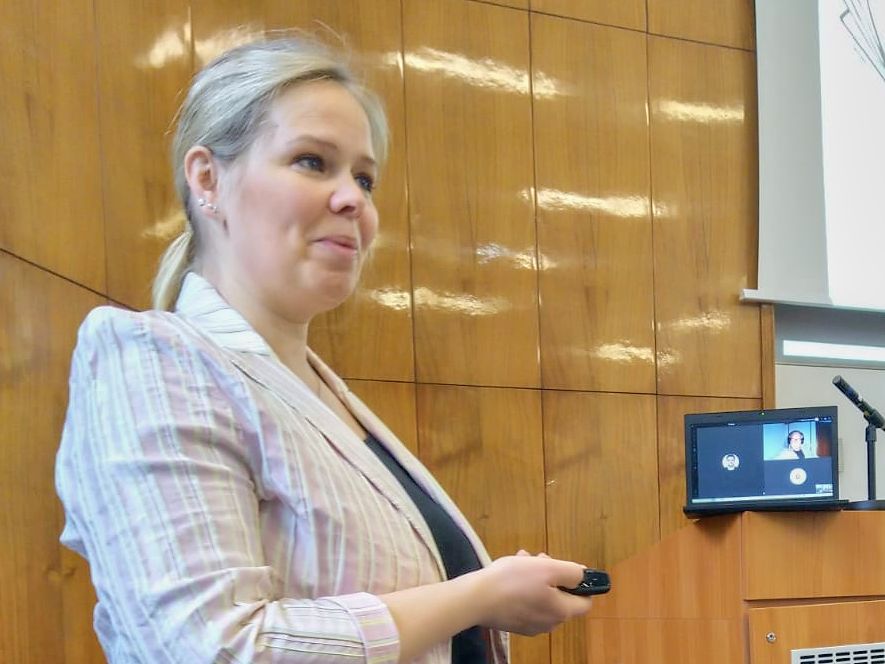 Gabriele Ehmcke
Gabriele Ehmcke
Johann Heinrich von Thünen Institute Federal Research Institute for Rural Areas, Forestry and Fisheries
How did you arrive in your current position?
In 2018 I moved with my family from Munich back to Hamburg. During my time at Holzforschung München (HFM), I was responsible for the scientific wood collection and assisted the lower nature conservation authority in enforcing the EUTR and CITES regulations. Besides this, I had the great opportunity to lecture and supervise my Master's thesis at the Technical University of Munich (TUM). The main focus was on wood anatomy and wood identification, wood decay and wood protection. In my PhD thesis at TUM, I studied furfuryl alcohol-modified wood during fungal decay at the cellular level, from micro-, ultrastructural and topochemical aspects. The main focus was on the in situ characterization by UV-Spectroscopy.
After my second child started kindergarten in 2021, I started the project position ASFORCLIC at the Thühnen Institute of wood research. During my studies, this was my former campus, and I was happy to work with my former colleagues again. At the Thühnen Institute, I'm part of the wood anatomy group, and my work focuses on topochemistry, while our lab is equipped with a universal microspectral photometer (UMSP).
Open Science and especially Open Data is highly debated on various levels. What is your opinion?
I am a great friend of synergies and like contributing to the research community. Open Science enables a more effective and open exchange of information within the scientific community and promotes the transfer of results to society. Access to the best journals is often not a problem at a large university or a significant institute. Many scientists are nevertheless hindered by financial, technical and legal hurdles in accessing scientific publications, research data and scientific software. I very much welcome that efforts are being made to define a clear and reliable framework for the transformation and free access to scientific results.
How do you maintain your work-life balance?
This is a tricky question - the work is essential to me, and I had to learn not to forget myself besides the household and two children. You have the reasonability to take care of yourself properly. Otherwise, you cannot perform (at work and at home) as you wish. I found my work-life balance in relaxation exercises, sports and our hunting dog Emmi. It is not easy to keep up doing these, or at least one of these things, but it is worth doing so!
How did you personally benefit from being a part of the ASFORCLIC consortium so far?
A benefit of being a part of the ASFORCLIC consortium is the opportunity to work with scientists from the different project partner countries. That means a lot to me because I like to work with people, I want to get to know their view of science, and when the synergies flow, they develop new ideas. So travelling, meeting the project partners in person and learning from them is another critical point for me.
Publications
The Thünen Institute is a German Federal Research Institute under the auspices of the German Ministry of Food and Agriculture. It was founded in 2008 by three previous agencies. The headquarters are located in Braunschweig. More
The Tühnen Institute of wood research focuses on the ecological and economically optimized production of wood-based materials and the sustainable use of wood. Furthermore, aspects and relationships between material use of wood and environmental protection, responsible utilization of wood resources, working and living environment, and aspects of health and consumer protection are considered. More
![]() This project has received funding from the European Union's Horizon 2020 research and innovation programme under grant agreement N°952314.
This project has received funding from the European Union's Horizon 2020 research and innovation programme under grant agreement N°952314.
